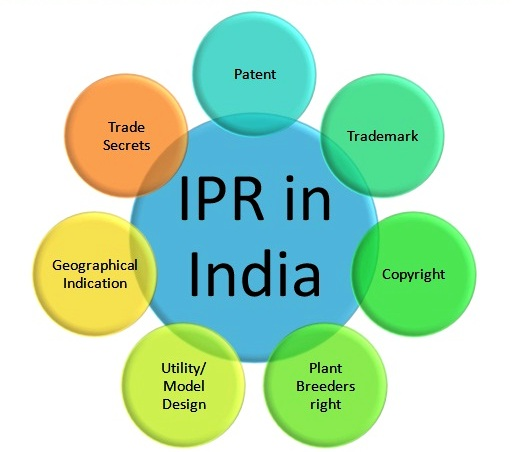Social Justice
Balancing Intellectual Property with Public Health
- 29 Apr 2020
- 8 min read
This article is based on Vaccinating policy published in Business Standard on 27/04/2020. It talks about the tradeoff in pharmaceutical innovation i.e. between patents and public health.
The current response to the Covid-19 pandemic involves the aggressive implementation of suppression strategies, such as case identification, quarantine and isolation, contact tracing, and social distancing. However, the transmission of infection may quickly rebound if interventions are relaxed. Therefore, the development of Covid-19 vaccines that can be used globally is a priority for ending the pandemic.
This developmental effort for vaccines should be guided by three imperatives: Speed, Manufacture and Deployment at scale, and Global access.
But the bigger challenge once the vaccines enter the market will be balancing Intellectual Property (IP) regimes with public health interests.
Issue: Patent (Intellectual Property Rights) vs Patient (Public Health Interest)
Provision of IP laws
- The production of vaccines requires high cost, very sophisticated methods and the high level of knowledge.
- In order to protect the initial investment, the global pharmaceutical industry exercises Intellectual Property Rights (IPRs) like patents and passes on this cost (and leveraging huge profits) to final consumers.
- Further, international trade agreements require countries with vaccine manufacturing capabilities to provide patent protection under the WTO agreement on trade-related aspects of intellectual property (TRIPS).
- In this context, IP laws are required to promote innovation in the R&D of new medicine or vaccines. However, it is due to these IPRs laws only, the global pharmaceutical industry establishes a monopoly over life-saving drugs.
- This, in turn, generates billions of dollars in revenue and wealth for shareholders.
- This also impedes new manufacturers from entering the Pharma research domain.
Monopolisation Comes at the Cost of Human Lives
- Public-health advocates and scholars have long argued, monopolies kill, by denying access to life-saving medicines. The patents are preventing competition and threatening both the affordability and the supply of new drugs.
- PCV13, the current multi-strain pneumonia vaccine administered to babies, costs hundreds of dollars because it is the monopoly property of Pfizer.
- In India, more than 100,000 preventable infant deaths from pneumonia are recorded every year, while the vaccine brings in roughly $5 billion in revenue for Pfizer annually.
- Monopoly control over the technology has even impacted battle against Covid-19.
- The rapid rollout of more testing kits, the respirator or N95 masks have made it more difficult for new producers to manufacture medical-grade face masks at scale.
- Multiple patents are in force for three of the most promising treatments for Covid-19 — Remdesivir, Favipiravir, and Lopinavir/Ritonavir.
Way Forward: Intellectual Production without Intellectual Protection
Leveraging Global Forums
- The World Health Organization’s Global Influenza Surveillance and Response System (GISRS) which has remained largely defunct, should be revived.
- Coalition for Epidemic Preparedness Innovations (CEPI) is supported by a World Bank financial intermediary fund that brings together public, philanthropic, and private funding to respond to global priorities.
- Through this fund, CEPI can act as a global mechanism for funding vaccine development until vaccines can be licensed or used under emergency use provisions.
Note:
- GISRS involves experts from a laboratory network in 110 countries funded by governments and some foundations which convene twice a year to analyse the latest data on emerging flu strains.
- It decides which strains should be included in each year’s vaccine.
- This global not-for-profit, knowledge-sharing architecture for the flu vaccines has been around for 50 years and could be a useful template in the quest for the Covid-19 vaccine.
Establishing Patent Pool
- Costa Rica’s government recently called on the WHO to establish a voluntary pool of IP rights for Covid-19 treatments, which would allow multiple manufacturers to supply new drugs and diagnostics at more affordable prices.
- Through the Medicines Patent Pool, the United Nations and the WHO have for years sought to increase access to treatments for HIV/AIDS, hepatitis C, and tuberculosis.
- Patent pools, prize funds, and other similar ideas are part of a broader agenda to reform how life-saving drugs are developed and made available.
- The goal is to replace a monopoly-driven system with one based on cooperation and shared knowledge.
- Therefore, the idea of patent pooling should now be expanded to cover vaccines for Covid-19 vaccine and health hazard.
Vaccine Bonds
- Innovative finance mechanisms have been successful in raising funds for vaccines in the past and should be used to fund the development of Covid-19 vaccines.
- The International Finance Facility for Immunisation (IFFIm) raises funds with vaccine bonds.
- These bonds are launched with advanced market commitments, where donors make funding commitments to vaccine manufacturers and, in exchange, companies sign a legally binding commitment to provide the vaccines at a price affordable to low-income and middle-income countries.
Role of India
- India is among the largest manufacturers of generic drugs and vaccines in the world.
- It is home to half a dozen major vaccine makers and a host of smaller ones, making doses against Polio, Meningitis, Pneumonia, Rotavirus, BCG, Measles, Mumps and Rubella, among other diseases.
- India has a state of art R & D facilities in the field of vaccines development.
- For example, the Serum Institute of India is the world's largest vaccine maker by the number of doses produced and sold globally.
- Following its conventional role of being a pharmacy to the world, India has already decided to speed up vaccine trials (six firms are in the fray).
- The Indian government can deploy the TRIPs-compliant tool of compulsory licensing to enable the vaccine to be produced by third-party manufacturers at affordable prices.
|
Drishti Mains Question Intellectual Protection regimes should not outweigh public health interests. In light of the statement, critically analyse the need for Intellectual property rights in the pharmaceutical sector. |
This editorial is based on “Virtual, yet open” which was published in The Hindu on April, 29th 2020.







